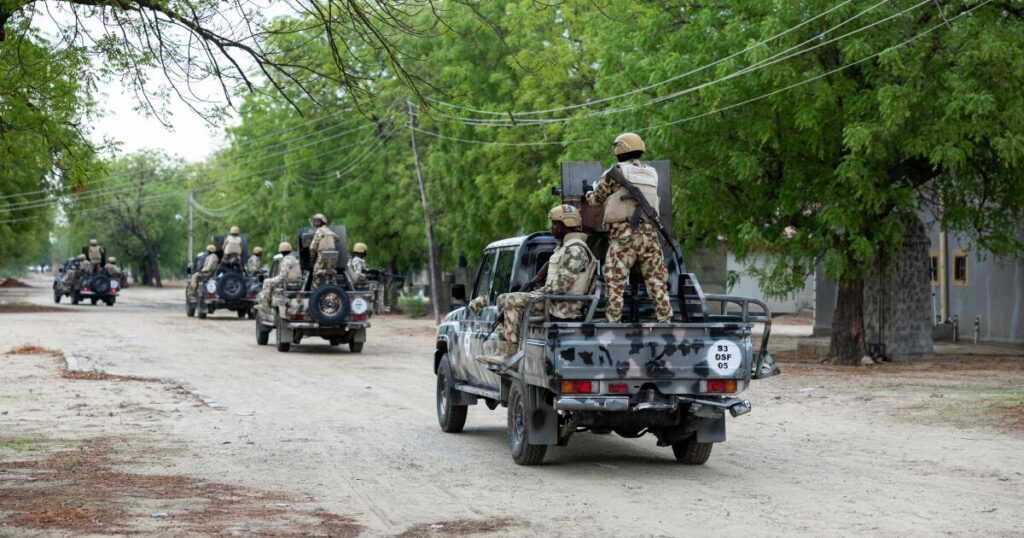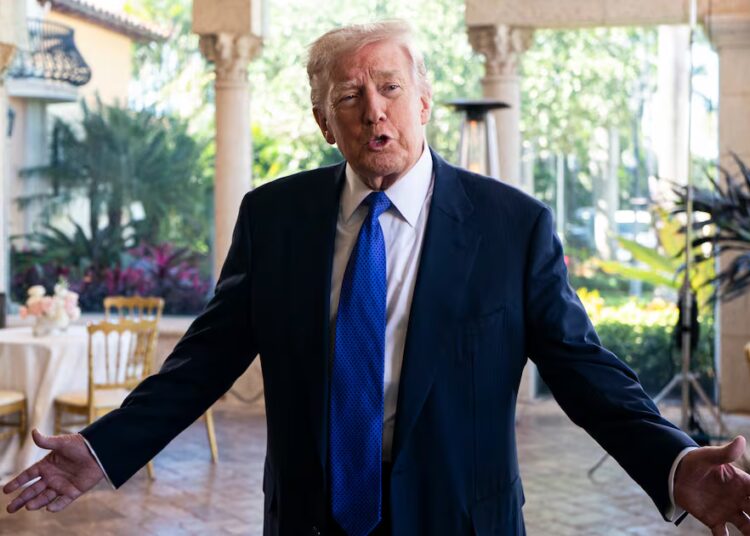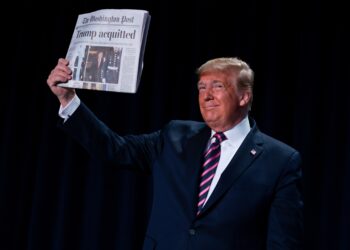On Truth Social earlier this month President Trump ordered Defense Secretary Pete Hegseth to “prepare for possible action” to protect Christians in Nigeria. (Hegseth’s social-mediated response: “Yes sir”). The order appears to have been prompted at least in part by a statement from Sen. Ted Cruz last month accusing the Nigerian government of “ignoring and even facilitating the mass murder of Christians by Islamist jihadists.” To a former career Foreign Service Officer with USAID, including more than three years based in Nigeria, the most interesting part of the order was the president’s threat to “stop all aid and assistance” to Nigeria.
As I sat at my desk in northern Virginia, having just filed another unemployment insurance claim after being illegally fired in July, I wondered: What aid? If the president meant military funding, it would seem counterintuitive to cut off the money explicitly designated to fight terrorism in Nigeria. I was more certain it was not the aid I used to administer, since soon after Trump took office in January he arrogated to himself congressional powers and let Elon Musk and others at the newly formed Department of Government Efficiency cut it off.
One program among the more than 5,000 that were effectively terminated by DOGE helped Nigerians to make modest but meaningful progress against conflict and extremism in northern Nigeria. Designated as Community Initiatives to Promote Peace, the program’s initial phases ran until 2024. It was ultimately eliminated before its expansion began in 2025. The curriculum trained respected community elders — usually local religious or tribal leaders — in conflict resolution and facilitated dialogue sessions among groups in conflict, such as Christian farmers and Muslim herders.
We designed the project the way medical researchers conduct vaccine trials: We divided the potential recipients into two groups, a “treatment” group receiving the trainings and dialogue sessions and a control group that didn’t. Then we took random samples of people’s opinions from both groups to see if the outcomes produced a statistically significant difference.
The results were impressive. After six months, when the groups were asked if their communities experienced a violent event, only 10% of people in communities that received negotiation training and dialogue meetings said yes, compared to 41% of people in communities that hadn’t. The Nigerians in the treatment group reported feeling more secure, more likely to walk around their communities and less likely to avoid certain areas than those in the control group.
This work was supplemented with grants to local Catholic, evangelical and Muslim organizations to expand their capacity to mediate conflicts peacefully. I spent dozens of hours coaching a plucky Catholic organization in the conflict hot spot of Kaduna in the mundane but necessary work — computerized accounting, documenting activities — to professionalize its operations. As a result, it was able to expand its conflict resolution work to more villages.
Yet, in the context of a country as physically vast and conflict-deep as Nigeria, our work in a few dozen communities could be fairly characterized as a pilot program, as we often lamented at the time. In response, we made strides training up state-level government officials and others responsible for wider geographic areas to institutionalize know-how so more aid wouldn’t be needed. We were also exploring ways to connect our efforts on the ground with social media influencers for greater publicity and impact.
Then, in early February, Musk spent a weekend feeding USAID into a wood chipper. What’s left in the policy toolbox, Trump has apparently decided, is to send the military into Nigeria with “guns-a-blazing.” The limits of this approach in Nigeria were on full display in May 2023, when a U.S. consulate convoy traveling in southeast Nigeria was ambushed. The identity and motive of the attackers is still unclear.
The incident stood out for its brutality, with the victims — two U.S. consulate personnel and two Nigerian police officers — horrifically burned beyond recognition inside their vehicles after their vehicles were subdued by gunfire. Three others were kidnapped.
Two suspects were quickly arrested, though it’s still not clear how they were tied to the attack, and it’s still not publicly known whether they have been tried and convicted. Even more alarming, despite extensive intelligence sharing between the American and Nigerian governments, no further arrests have been announced. If “guns-a-blazing” presumes known targets, it doesn’t seem promising that we haven’t had much success finding the perpetrators who killed U.S. government employees and burned U.S. armored vehicles.
USAID’s conflict resolution work points to a larger truth about foreign aid that complicates the simplistic binary often presented: that it’s either selfless charity or “woke” out-of-control spending. USAID soberly understood its role as something else entirely — the implementers of a tool in the U.S. government’s foreign policy toolbox. Sometimes we weren’t the right tool for the job; violent force was. This was a reality just as true in Nigeria as anywhere else.
Wise leaders understand which tool, or combination of tools, and in what quantity to apply them in order to achieve their goals. For anyone genuinely concerned about the plight of Christians in Nigeria, it is deeply unfortunate that the U.S. government no longer has its considerable foreign aid budget as part of its engagement with the Nigerian government on the issue.
In the courtyard of the U.S. Embassy in Abuja today, a small tree rises next to a plaque solemnly honoring those killed. It was planted at a moving ceremony during which surviving family members spoke about the dedication and pride of their loved ones in supporting the good work of the U.S. in Nigeria. Now they, like the rest of Nigeria, might soon experience a U.S. invasion. Americans might experience, probably not for the last time, what happens after we — some of us gleefully — forfeited one of the most effective tools we possessed to wage peace.
Daniel Morris, a former American diplomat, was USAID’s senior conflict advisor in Abuja, Nigeria, from 2020 to 2024.
The post Trump cut Nigeria’s aid back in March. Now he wonders why it’s so violent appeared first on Los Angeles Times.




